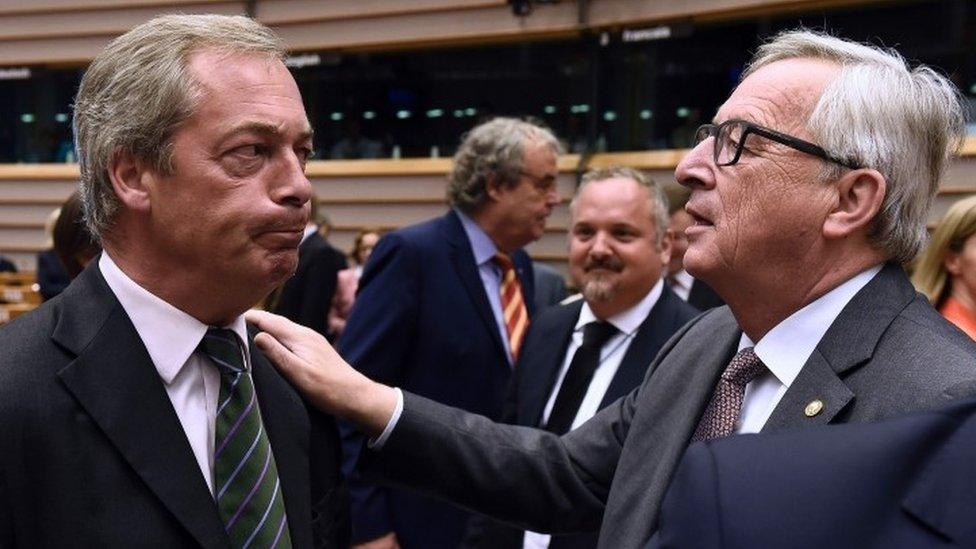Steering Britain out of the EU
- Published
- comments

The name's Verhofstadt - Guy Verhofstadt...
Negotiations over leaving the EU are set to begin next year. Might one leading European official's love of many things British help things go a little more smoothly?
One key to a Brexit deal could be a vintage Aston Martin.
That, I have discovered, is what petrolhead Belgian MEP and EU Brexit negotiator Guy Verhofstadt drives.
An amateur rally enthusiast, Mr Verhofstadt shared some of his passion for cars with the Secretary of State for Exiting the EU, David Davis, during a meeting in Strasbourg this week.
Mr Davis emerged beaming from the talks saying Mr Verhofstadt was great fun, saying: "He's a very nice man. He races British cars and we got on very well."
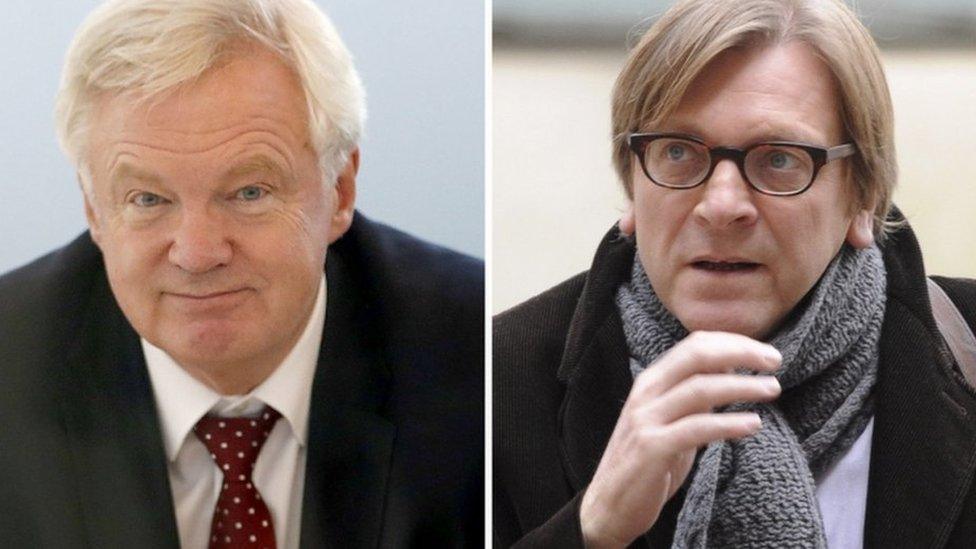
David Davis (l) and Guy Verhofstadt
A quote that suggests these early stages of non-negotiation could not be going better. He likes British cars!
Mr Verhofstadt leads the liberal group in the European Parliament and will represent MEPs in the forthcoming negotiations with the UK. If you think of Nigel Farage at one end of the EU spectrum, Guy Verhofstadt is at the other.
A passionate believer in the EU project, the former Belgian prime minister enjoys tormenting Eurosceptics as much as he enjoys tearing round a race track. His voice will matter as the UK tries to cut a divorce deal with the EU.

Could Mr Verhofstadt also be a fan of Adele?
So the fact that he, of all people, enjoys spending time with an oily rag and Aston Martin suggests an emotional tie to Britain that could colour his view of Brexit. And what about all the other EU negotiators and leaders?
Holidays in Devon, a love of Adele, a taste for Marmite. All this might matter as the UK and the EU knuckle down to business.
A process that government ministers like to say will be fairly straightforward. Theresa May talks about it being a "smooth process". Mr Davis has said he is confident a deal can be struck in the mutual interests of the UK and the rest of the EU.
But if the UK thinks there can be a form of Gwyneth Paltrow-style "conscious uncoupling" with the EU that avoids the acrimonious misery of most divorces, I think they're wrong.
No amount of affection for all things British is going to soften the EU's determination to make Brexit hard on the departing member state.
A hint of this was in the curt and flinty comments by various MEPs after Mr Davis had gone.
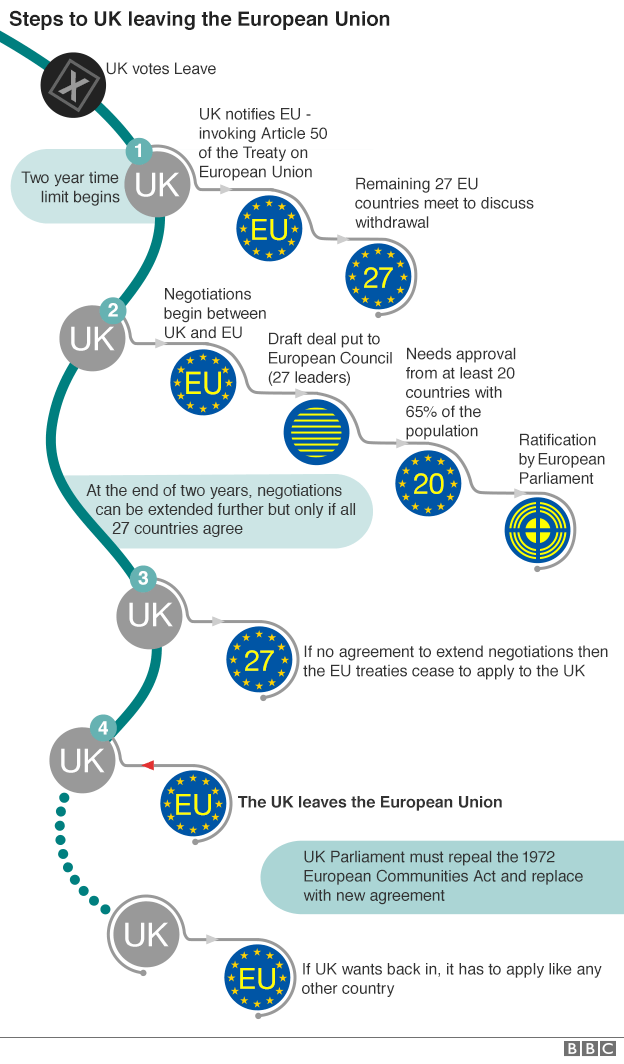
The process to take the UK out of the European Union starts with invoking Article 50 and will take at least two years
Mr Verhofstadt said the negotiations would be "intense" and there could be no compromise on the four freedoms underpinning the EU. The leader of the centre-right group of MEPs, Manfred Weber, was brusque, saying there could be no cherry-picking and no special deal between the UK and the EU.
Speaking to officials and politicians off-the-record in Brussels last week, I did not hear much talk about a straightforward deal cut for mutual benefit. Instead, the aim is to find an exit for Britain that makes it clear to remaining EU states they are better off in the club than out of it.
Of course, the EU does a lot of trade with the UK and member states do not want to jeopardise that. But I was also told by officials within the EU institutions that Brexit is an existential threat to the EU that has to be dealt with firmly. That might mean a divorce deal with the UK that puts politics ahead of economics. Which is exactly what many in Brussels think Theresa May's government has done by heavily hinting the UK wants to leave the single market but have access to it.
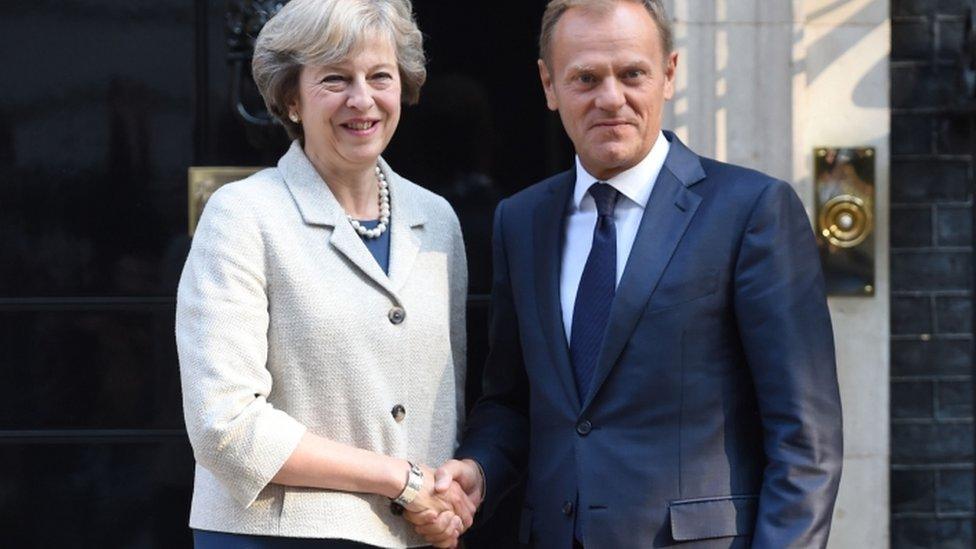
Donald Tusk says the common strategic goal is to establish the closest possible relations
As the president of the European Council, Donald Tusk, has already said, he thinks the choice for Britain will either be a hard Brexit or no Brexit. For the EU it is Mr Tusk who will lead the remaining 27 member states through the talks with UK. The nitty-gritty of negotiations will be done by the European Commission and a unit headed by Michel Barnier, the EU's chief Brexit negotiator. But it is EU states who will have the final say on that side of the table.
The mantra in Brussels is "no negotiation without notification". That means no talks with the UK until Theresa May triggers Article 50 of the Lisbon Treaty - a move she wants to make by the end of March 2017.
There is impatience in the EU for the prime minister to get on with it. As Whitehall tries to work out what it wants from Brexit, a parallel process is under way in Brussels and there is a sense of mobilisation.
Bilateral meetings are happening now between the EU Council and the remaining 27 member states on how the negotiations should work. This work is being led by Didier Seeuws, who runs the European Council's Brexit taskforce. These talks are not about the substance of the negotiation or red lines but about how the EU heads of government will feed into the Commission's work during Article 50 negotiations.

Guy Verhofstadt - campaigner for 'more Europe'
Leader of liberal group ALDE in European Parliament (67 seats - fourth-largest group)
Served as Belgian prime minister from 1999 to 2008
He cut Belgian taxes on individuals and businesses
Wants a more ambitious EU, to develop energy infrastructure, banking union, investment and labour mobility

Brexit is also expected be discussed among the 27 (without the UK) on the margins of the December European Council. Soon after Article 50 has been triggered, the EU Council of 27 will meet to agree the negotiation guidelines and discuss their starting position for talks. In Westminster it is often assumed the UK is in the driving seat for negotiations. That is not so.
In the European Council's view, Article 50 is there to protect the interests of the remaining 27 EU members. I do not think there is a punitive mood towards Britain but there is a widespread expectation negotiations will be tougher and more complex than the UK realises.
As one Commission official told me, unlike David Cameron's renegotiation, the UK will not have any "friends" in these talks. Each country will try to use Brexit to their press own advantage.
France, in particular, sees a great opportunity for growing its own financial services sector after years of feeling thwarted by the UK. And with the various legal services of the EU institutions to use, the expertise of EU trade negotiators and the European Commission to draw upon, I was not discouraged from thinking the UK might be rather outgunned. One official told me the EU had a howitzer compared to the UK's peashooter.
There has been a lot of speculation about whether Mrs May will seek a transitional deal with the EU; an arrangement that bridges the time between the UK leaving the EU and beginning a new trade relationship. It may not be her choice.
Crucially, the European Council sees the Article 50 negotiations as limited to the divorce deal. In its view, talks about the future trade and security relationship between the UK and EU can only start after the UK has left, so parallel talks on a transitional arrangement are expected. It could all get very messy.
If negotiations prove tough and more time is needed beyond the two-year Article 50 window, only the remaining 27 member states can agree to extend talks by unanimous agreement.
Some senior officials in Brussels believe it is quite possible no agreement can be found and that either the UK crashes out of the EU with no deal reached or the government decides to pull the brake on the whole process. The European Council does not have a legal opinion on whether that is even possible and clearly in Britain that scenario is as politically far-fetched as it gets.
But in contrast to the post-referendum phoney war that still prevails, Brexit will soon pit Westminster against a belligerent Brussels. A European fondness for classic British cars will count for very little.
- Published8 September 2016
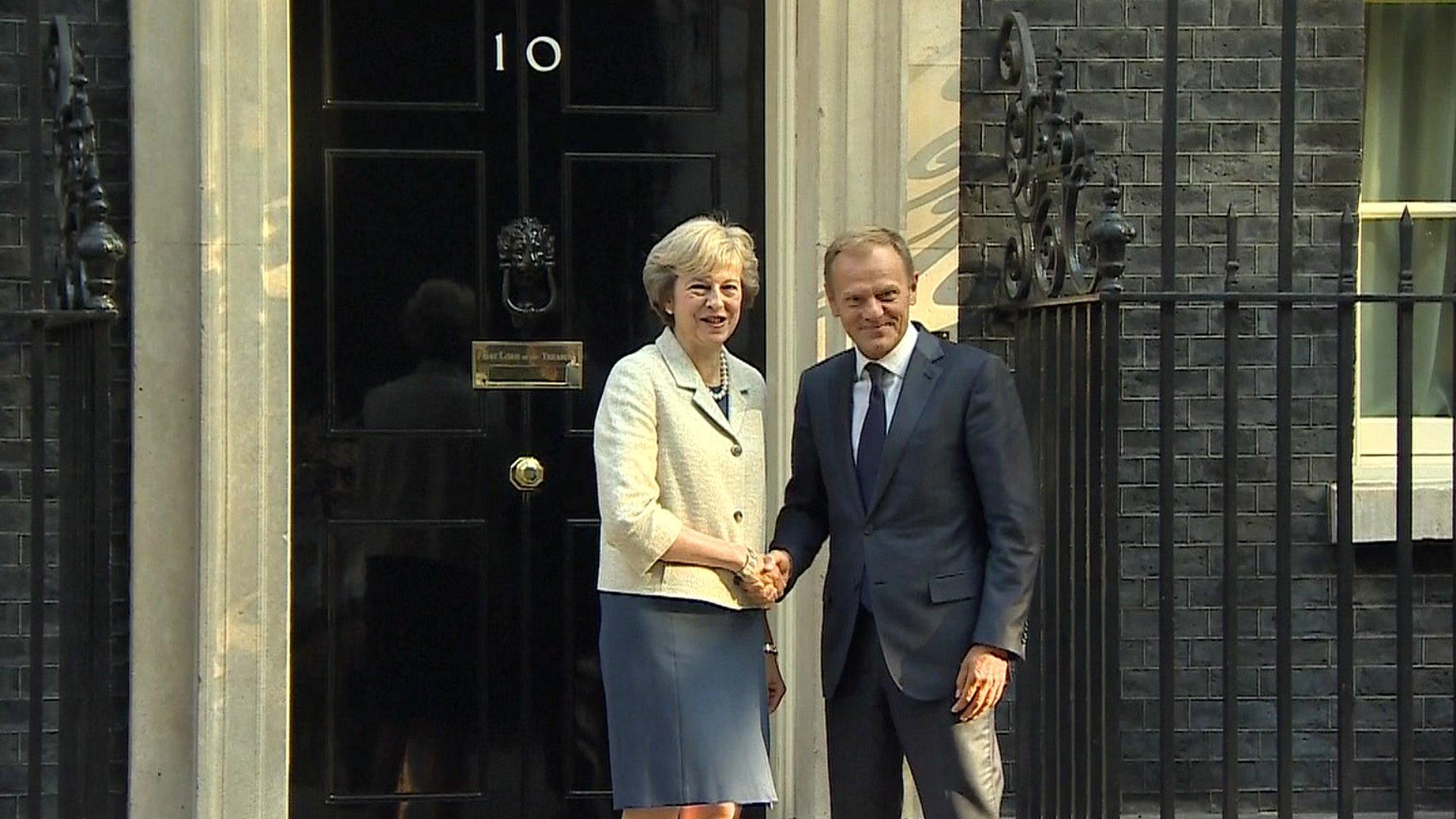
- Published30 December 2020

- Published28 March 2017
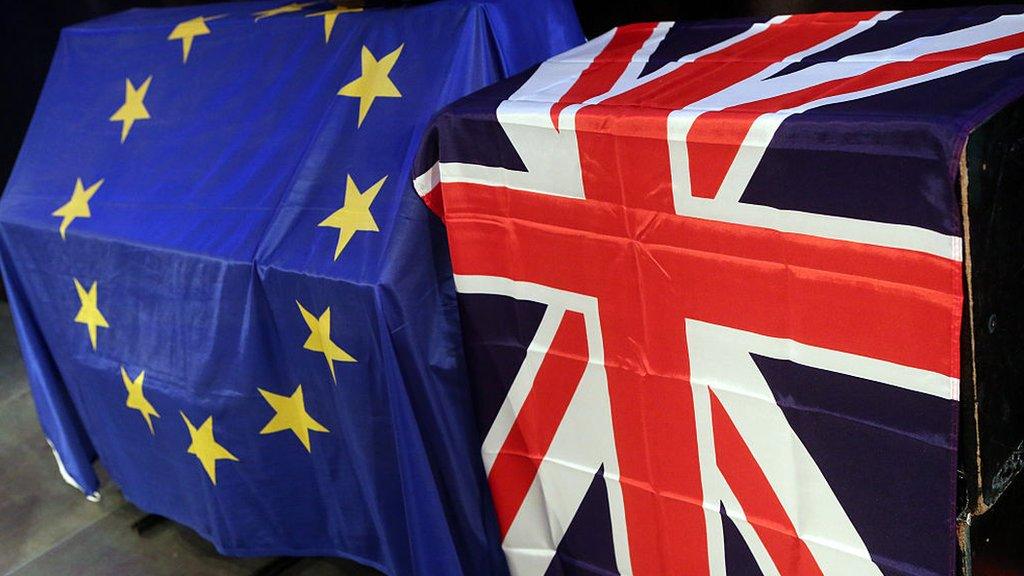
- Published5 July 2016
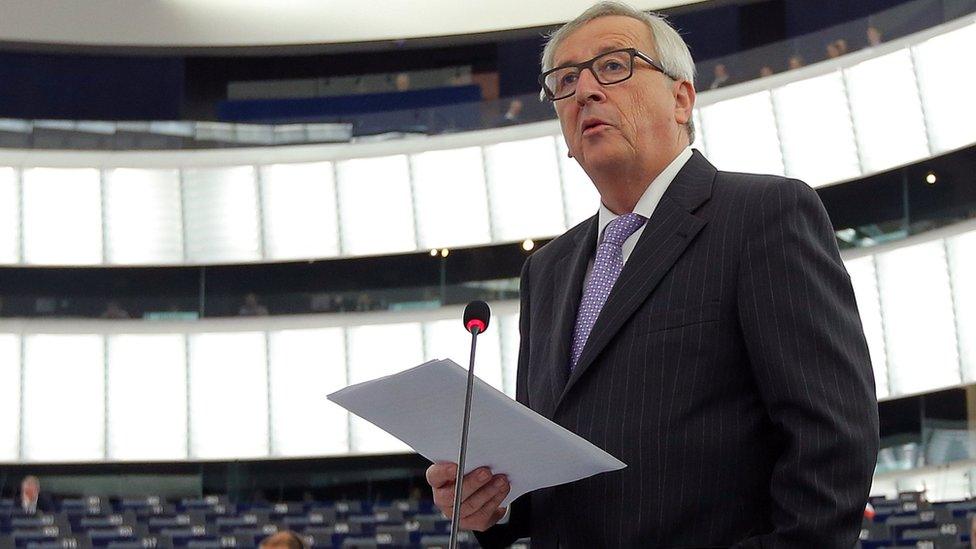
- Published28 June 2016
